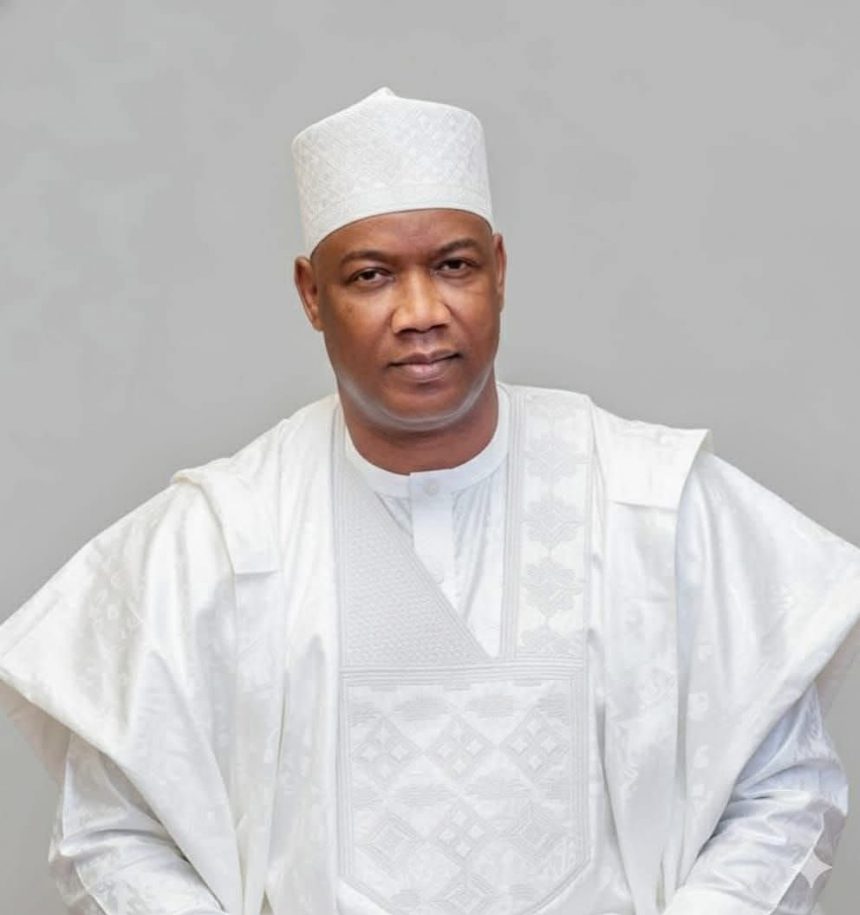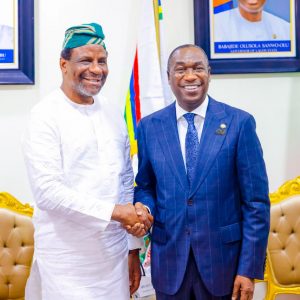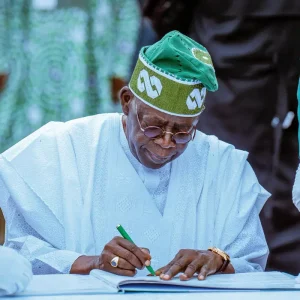It is no longer news that the Kwara church worshippers and the Yobe schoolchildren kidnapped last month have finally regained their freedom.
We are grateful. Nigerians everywhere are grateful.
This is a welcome development by every measure.
But as a journalist, curiosity is my permanent companion. It never sleeps. So when a certain video surfaced online — showing Seyi Tinubu, the President’s son, sitting comfortably with the ever-controversial Sheikh Ahmad Gumi — my instincts exploded with questions.
Why was Seyi there?
What was the purpose of this unexpected visit?
Who arranged the meeting?
And most importantly: What power play was unfolding behind the scenes?
I activated my network. And what I uncovered was nothing short of astonishing.
According to impeccable sources deeply familiar with the circumstances of this “August visitor” in Sheikh Gumi’s palatial mansion, Seyi Tinubu has quietly emerged as one of his father’s most formidable foot soldiers.
In fact, many of the young Nigerians widely celebrated as Gen-Z supporters of President Bola Ahmed Tinubu are, in reality, loyalists of Seyi — a man whose influence would be a costly mistake for anyone to underestimate.
My source revealed that the National Security Adviser, Mallam Nuhu Ribadu, played a pivotal role in facilitating this meeting. The story goes like this: alarmed by the rising wave of insecurity threatening to destabilize his father’s government, Seyi sought an audience with Ribadu.
He wanted solutions — real solutions — not political rhetoric.
Ribadu, a man with decades of intelligence wisdom, reportedly advised him to meet someone who understands the terrain like no other: Sheikh Gumi, a figure whose name rings loudly among those familiar with the activities of Fulani bandits.
Seyi Tinubu, visibly shaken and desperate to end the blood-soaked cycle of kidnappings, collected Sheikh Gumi’s contact immediately and headed straight to his home.
What happened next is now written in history:
The schoolchildren were released — without a single shot fired.
No gunfire.
No casualties.
No waste of precious military bullets.
The bullets, as my source bluntly put it, “can be reserved for another day.”
At the same time, a second layer of diplomacy was also unfolding. Another high-level meeting between the Governor of Bauchi State, Senator Bala Mohammed, and the Secretary to the Government of the Federation, Senator George Akume, reportedly played a crucial role in securing the release of the children.
This was not a coincidence.
This was coordination.
What the Tinubu administration has done here is something its predecessor never imagined — blending kinetic force with strategic diplomacy.
Not every war must be fought on the battlefield. Sometimes the most effective weapons are dialogue, negotiation, and understanding the psychology of the enemy.
More importantly, this government has identified a channel of communication between the state and the bandits.
This is what Nigerians have been praying for.
When militants kidnap citizens elsewhere — Niger Delta, South-East, North-East — we know who to call.
But with Fulani bandits, the nation has long been groping in the dark.
No parent prays to bury a child. No community wishes to mourn its own. That is why I did not crucify former Governor Nasir El-Rufai when he admitted publicly that he paid ransom to protect his people. He acted like a leader forced into impossible choices.
If El-Rufai were in today’s government, he would likely pick up the phone, contact the same networks, and ask the bandits: “What do you want, and how do we bring peace?”
Nigeria is not like any other country.
We are over 260 million people, with nearly 350 languages and more than 700 tribes woven into one fragile national fabric.
Only someone who doesn’t understand Nigeria’s complexity would compare us with the rest of the world.
So when the kidnappers of the Kwara church worshippers reportedly demanded ₦300 billion, I did not panic.
I have seen some of these bandits up close. Many of them have never held ₦10,000 in their hands before.
Clearly, there are puppet masters somewhere — invisible hands pulling the strings.
To finally end this madness, President Bola Ahmed Tinubu must continue reaching out to Fulani leaders across the country.
A purely military solution will never defeat banditry.
You cannot bomb your way out of a problem rooted in history, identity, and grievances.
And let us be honest:
The tribe involved in this crisis cannot be underestimated in national affairs.
Engage them, understand them, and negotiate with their leaders.
In fact, we must do the same with every aggrieved group — IPOB, MEND, Boko Haram, OPC, and others.
Dialogue is not weakness; it is wisdom.
You cannot solve a problem you refuse to understand.
So whether you agree or not, banditry is driven largely by a minority faction of the Fulani.
Accepting that reality will save your sanity.
Nigeria has taken a bold step by choosing diplomacy over destruction.
And for once, the result is something all Nigerians can celebrate.
Mogaji Wole Arisekola
Publisher, The Street Journal Newspaper
Writes from Ibadan.
Stay ahead with the latest updates!
Join The Podium Media on WhatsApp for real-time news alerts, breaking stories, and exclusive content delivered straight to your phone. Don’t miss a headline — subscribe now!
Chat with Us on WhatsApp






